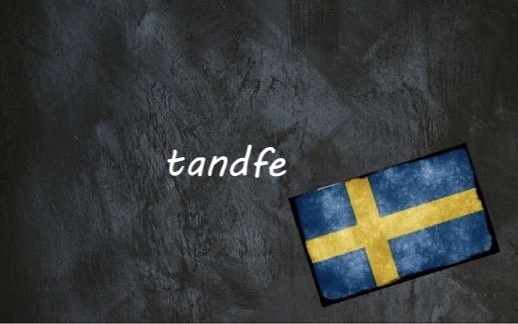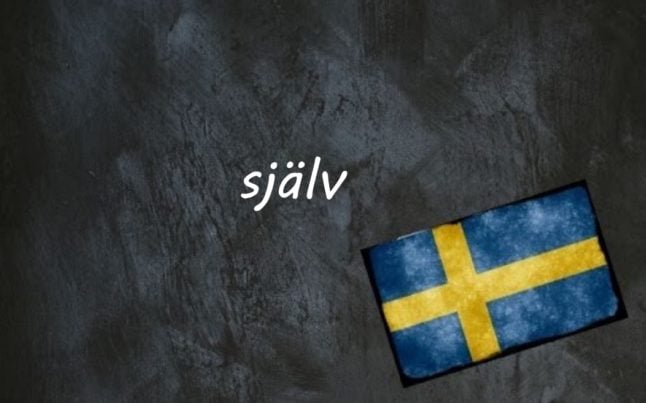Tandfe means ‘tooth fairy’ in modern Swedish. Why mention the ‘modern’ bit? Well, because it didn’t always mean this.
In the folklore of various countries, the tooth fairy is a winged creature that replaces a lost milk tooth (usually placed under a pillow or in a glass of water) for a gift, most often a coin or a bill.
But this fairy is not even a fake fairy, it is a double fake, nothing but a mistranslation. Going back to pre-Christian times in Scandinavia, among the Norse peoples, a tannfé was a gift given to children when they lost their first tooth.
The Old Norse word tannfé, is made up of the two words tann, meaning ‘tooth’, and fé, which has the same root as the modern day Swedish fä, meaning animals that are kept for financial return, such as cattle. Fä comes from the older fæ or fé, meaning ‘property; wealth’. Often used to denote what was given to pay for something. In other words a ‘fee’.
So tandfe really means “tooth money” or a “tooth fee”. The confusion is of course with the French word fée or English ‘fay’.
Manual widget for ML (class=”ml-manual-widget-container”)
This tradition of giving gifts for teeth is so old it even appears in Norse mythology, more specifically in the Poetic Edda, a collection of Old Norse narrative poems. There it is written that Álfheimr, home of the light elves and the god Frey (whose sister Freyja might be the reason why the fifth day of the week is called Friday), was gifted to the infant Frey as a tooth gift.
Alfhęim Fręy
gǫ́fu í árdaga
tívar at tannféi.
Meaning:
Alvheim fick Frej
av de andra gudarna
i tandgåva arla i tiden.
As translated by Björn Collinder. Notice, arla, in Collinder’s translation, like the milk company, means ‘early’ or ‘ere’ and has the same root. This is also where ‘yearly’ comes from, but the word in Old Norse is árdaga, meaning ‘in days of yore’. Let us attempt a translation in English:
Alfheimr, Frey
was gifted in old days
by the Gods as a tooth fee.
This tradition itself is said to have come from the belief that children’s teeth offered protection or luck in battle, and that many Norse warriors wore them on necklaces.
Perhaps when your kids are old enough to not believe in the tooth fairy anymore, you can finally tell them the truth about this double fake fairy, and give them a piece of real mythology and history to replace it with.
Example sentences:
Mamma, tror du tandfen kommer om jag lägger min tand under kudden?
Mommy, do you think the tooth fairy will come if I put my tooth under the pillow?
Det finns ingen tandfe!
There is no tooth fairy!
Villa, Volvo, Vovve: The Local’s Word Guide to Swedish Life, written by The Local’s journalists, is now available to order. Head to lysforlag.com/vvv to read more about it. It is also possible to buy your copy from Amazon US, Amazon UK, Bokus or Adlibris.



 Please whitelist us to continue reading.
Please whitelist us to continue reading.
Member comments